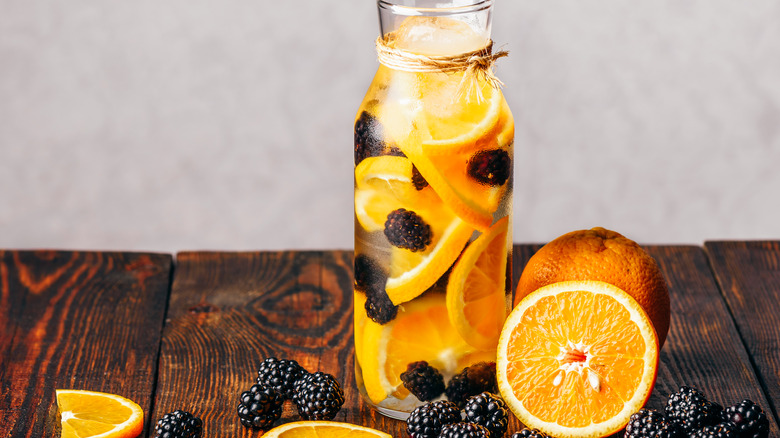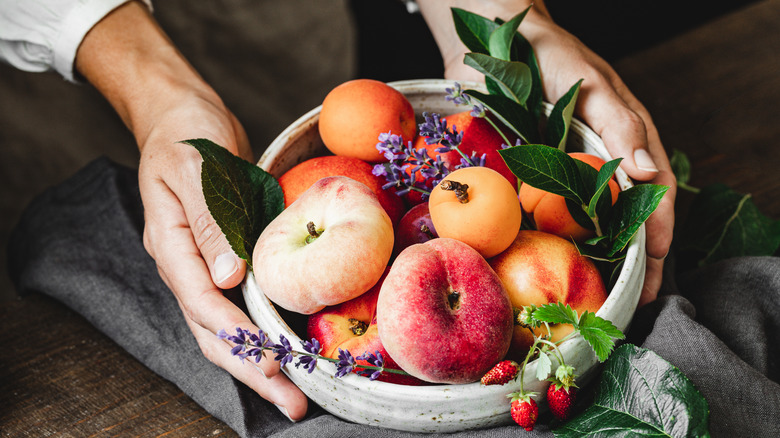Before Infusing Gin With Fruit, Check For Bruises
Among the things you should know about gin is that in comparison to other spirits, it's relatively easy to produce and lends well to fruit infusions. That ease of preparation does not mean that the process doesn't require a degree of care, though, particularly when it comes to the fruit you use. Using fruit that's too bruised to eat on its own in preparing gin might seem like a good way to prevent food waste but this would be a disservice to your end product.
When it comes to fruit, a bruise is more than skin deep. Research has shown that bruised pears, for example, release a higher intensity of volatile compounds than their unbruised counterparts, which has a noticeable effect on their quality and taste (via Nutrition and Food Science). If the fruit itself doesn't taste as good, it stands to reason that gin made from the same fruit won't taste as good either.
To keep your fruit from bruising, it's important to handle it with care from the outset. Be sure to thoroughly check the product when you're buying it to ensure it's not bruised already. Be very gentle when touching it so you don't damage it yourself. Whether you're buying fruit for the express purpose of making gin or keeping it for general use, storing it correctly is key to getting the best taste when it comes to using it.
Store your fruit correctly to ensure optimal quality
There are so many fruits that make for a beautiful gin, with some of the best including elderberries, peaches, cherries, and oranges. To prevent bruising and mold, as well as to help them maintain freshness, it's important to note the optimal storage methods for each type of fruit.
Berries, like elderberries, blueberries, and strawberries, as well as not-technically-berries like cherries, are best stored in the fridge, laid over the top of a paper towel to absorb moisture. Berries are susceptible to mold because of their moisture content, which is also why you should only rinse your berries when you're about to use them. Oranges, lemons, grapefruit, and other citrus fruits should also be stored in the fridge to keep them fresh for longer.
Peaches are notorious for bruising, so they should be handled with extra care. To help prevent bruising during storage, it's recommended that they are stored in a single layer at room temperature. Apples, bananas, and watermelons are also best kept at room temperature as long as they are kept well away from direct sunlight so as not to hasten ripening. If you can, you should store these fruits separately, particularly bananas as they release ethylene gas which hurries the ripening process.
As with many other beverages, high-quality ingredients make the best gin. Use fruit at the peak of its ripeness for fruit-infused gin.

